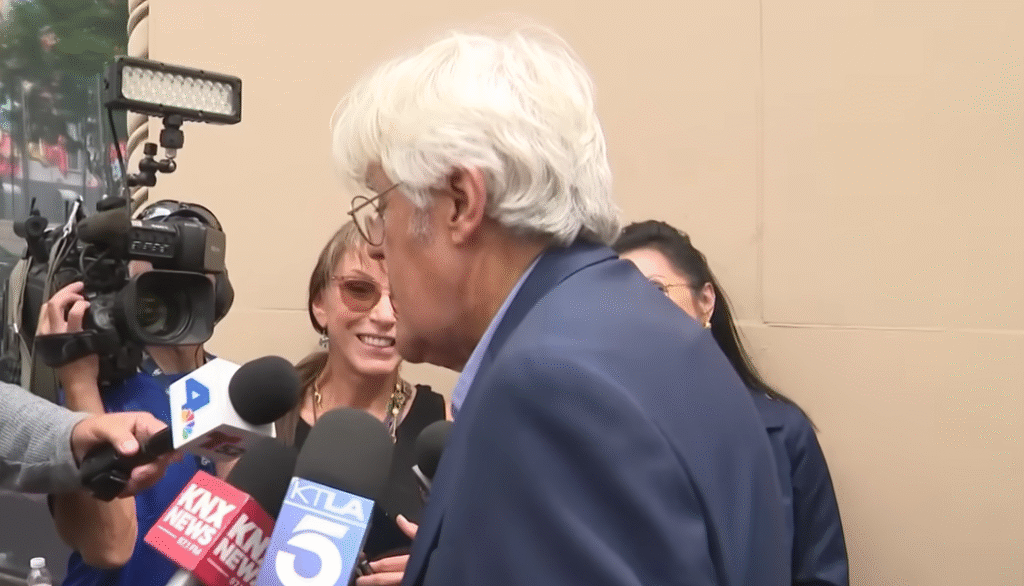Being the owner of ABC carries a remarkably symbolic weight because the network has long served as a mirror reflecting American cultural milestones, entertainment habits, and conversations in addition to being a broadcaster. The question of “Who owns ABC?” asks who is in charge of a vital component of the country’s narrative apparatus. The Walt Disney Company is the remarkably obvious answer today. However, the history that led to this ownership is a complex story of corporate strategy, ambition, and regulation that is as intricate as the storylines of the shows that ABC has broadcast for many years.
When Edward J. Noble, the candy magnate who created Life Savers, bought NBC Blue for $8 million in 1943 after NBC was forced to sell off one of its two radio networks by regulators, ABC’s story took an unexpected turn. With the help of that candy fortune, the American Broadcasting Company was born, and it would fight for decades to compete with NBC and CBS. The story, which demonstrates how an outsider in the industry can spark a media legacy that endures for generations, is especially intriguing.
For much of the 1950s, ABC relied on collaborations. Through its 1954 agreement with Walt and Roy Disney, ABC gained a significant stake in the theme park in addition to providing viewers with Disneyland. This partnership was particularly creative because it linked television to travel and demonstrated that media brands could transcend the screen and into real-world experiences. It served as an early indication of what Disney’s complete acquisition would eventually formally become.
Table: American Broadcasting Company – Ownership and Key Information
| Attribute | Details |
|---|---|
| Full Name | American Broadcasting Company (ABC) |
| Founded | 1943 (originating from NBC Blue Network) |
| Founder | Edward J. Noble |
| Headquarters | Burbank, California & New York City |
| Parent Company | The Walt Disney Company |
| Acquisition by Disney | 1996, $19 billion deal |
| Previous Owners | NBC (as Blue Network), Edward Noble, United Paramount Theatres, Capital Cities |
| Industry | Broadcasting, Entertainment, Media |
| Key Executives | Dana Walden, Craig Erwich |
| Sister Channels | ESPN, Disney Channel, Freeform, FX |
| Official Website | ABC Official Website |

The 1970s were ABC’s heyday. From being the underdog to the national leader, the network rose to prominence thanks to hits like Happy Days, Roots, and Monday Night Football. The impact of Roots, which was viewed by over 100 million Americans, was particularly evident and changed the way that people talk about history and race. Monday Night Football, on the other hand, established itself as a tradition by skillfully fusing entertainment and sports to keep families glued to computers. It was at last that ABC had established itself as a cultural institution as well as a network.
But in 1986, ownership changed once more when Capital Cities Communications shocked the market by paying $3.5 billion to acquire ABC. This purchase showed that even smaller businesses could take bold steps toward media consolidation; Netflix and Amazon later adopted this tactic when they decided to enter the Hollywood film industry. The most important change, however, occurred in 1996 when Disney paid $19 billion to acquire Capital Cities/ABC. Television had become inextricably linked to entertainment giants, so that deal, which at the time was the biggest in American media history, was symbolic as well as financial.
Disney’s ownership of ABC created significant synergy. The reach of live sports broadcasting was significantly increased by Disney through the integration of ESPN into ABC’s operations. The combination was very effective at combining content from cable, television, and later streaming services like Disney+ and Hulu. As a result of its extraordinarily diverse programming—which included everything from news to sports to dramas—ABC managed to maintain its reputation as a household brand despite the threat posed by streaming behemoths to established networks.
Current disputes highlight how programming is impacted by ownership. Jimmy Kimmel was suspended by ABC in 2025 for remarks he made regarding Charlie Kirk’s murder; this decision was influenced by Disney as well as affiliate pressure from Nexstar and Sinclair. The delicate balance between corporate interests, political scrutiny, and journalistic freedom was brought to light in the episode. It was a strikingly obvious illustration of how ownership influences editorial decisions and how networks frequently give in to pressure when regulatory risks are present.
There are striking cultural similarities. Similar to how Taylor Swift’s ownership of her discography served as a catalyst for artistic control, Disney’s ownership of ABC symbolizes corporate storytelling domination. The identity of ABC’s owners has a tangible impact on viewers since it influences the stories that are broadcast, the voices that are heard, and the handling of controversies. Every blackout dispute serves as a reminder that corporate negotiations are the key to content access, such as the 2024 DirecTV dispute that momentarily cut off millions of viewers from ABC and ESPN.

